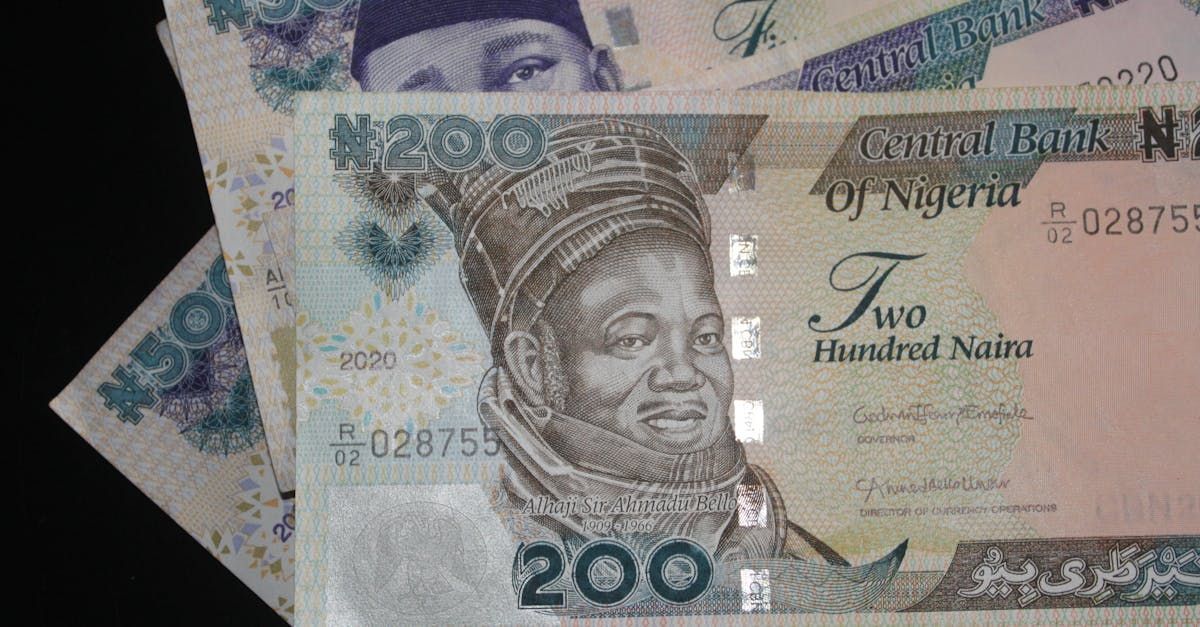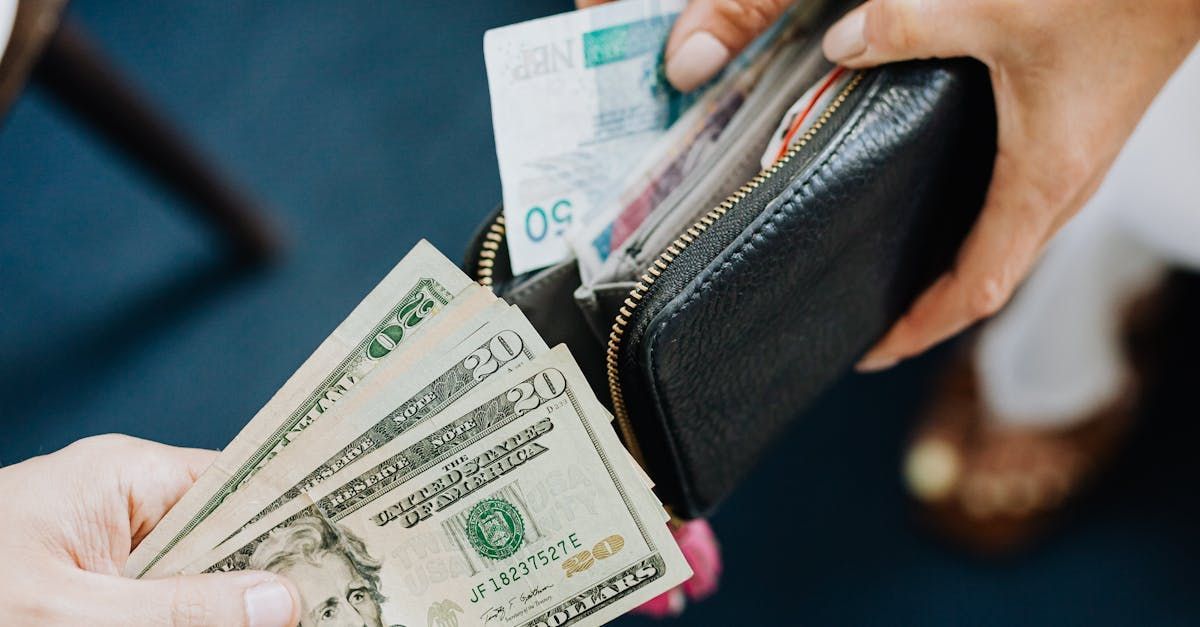WHY IS THE NAIRA SO VOLITILE? HERE IS WHY!
The Instability of the Nigerian Economy and Its Currency: Causes and Solutions
Nigeria, Africa’s most populous country and one of its largest economies, has long struggled with economic instability, manifesting in significant volatility in its currency, the naira. This instability is a reflection of broader structural issues within the Nigerian economy, which have been exacerbated by various domestic and global factors. Understanding the causes of this instability is crucial for developing effective solutions that can foster sustainable economic growth and stabilize the naira.

Causes of Economic Instability in Nigeria
1. **Overreliance on Oil Revenue**
Nigeria's economy is heavily dependent on oil exports, which account for more than 90% of the country’s foreign exchange earnings and a significant portion of government revenue. This reliance on a single commodity makes the economy extremely vulnerable to fluctuations in global oil prices. When oil prices are high, the economy benefits from increased revenues, but when prices fall, as they did during the global oil price crashes in 2014 and 2020, the country experiences severe economic shocks. These shocks lead to reduced government spending, currency depreciation, and increased inflation, all of which contribute to economic instability.
2. **Chronic Inflation**
Nigeria has struggled with chronic inflation, driven by factors such as currency devaluation, high import dependency, and supply chain disruptions. The Central Bank of Nigeria (CBN) has often resorted to expanding the money supply to finance government deficits, which exacerbates inflationary pressures. High inflation erodes the purchasing power of the naira, leading to further depreciation of the currency and a loss of confidence among investors and consumers.
3. **Inconsistent Economic Policies**
Inconsistent and often short-sighted economic policies have contributed to the instability of the Nigerian economy. Frequent changes in monetary policy, unpredictable regulatory frameworks, and government interventions in key sectors such as foreign exchange markets have created an environment of uncertainty. This uncertainty discourages investment, both domestic and foreign, and undermines efforts to stabilize the economy. When you wonder why the prices of everything has gone up, wonder again!
4. **Political Instability and Corruption**
Political instability and widespread corruption have also played a significant role in Nigeria's economic challenges. Corruption undermines the effectiveness of government institutions, leading to misallocation of resources and inefficient public spending. Additionally, political instability, characterised by regional conflicts, insurgencies, and frequent changes in leadership, has created an unpredictable environment that hampers economic growth and development.
5. **Inadequate Infrastructure and Poor Diversification**
Nigeria’s inadequate infrastructure, particularly in transportation, energy, and telecommunications, has hindered economic diversification and industrialization. The lack of reliable infrastructure increases the cost of doing business and limits the competitiveness of non-oil sectors. As a result, the economy remains heavily reliant on oil, with little progress in developing other industries that could provide a more stable economic base.
The Instability of the Naira
The instability of the Nigerian naira is both a symptom and a cause of broader economic instability. The naira has experienced significant depreciation over the years, driven by factors such as declining foreign reserves, high demand for foreign currency, and speculative activities in the forex market. The CBN has attempted to manage the naira’s value through various means, including multiple exchange rate windows and periodic devaluations, but these measures have often been met with limited success.
One of the key challenges in stabilizing the naira is the persistent shortage of foreign exchange. This shortage is driven by the decline in oil revenues, capital flight, and the high demand for imports. The resulting gap between official and parallel market exchange rates creates opportunities for arbitrage and contributes to the speculative pressure on the naira.
Possible Solutions to Economic Instability and Currency Volatility
1. **Diversification of the Economy**
Diversifying the Nigerian economy is essential for reducing its vulnerability to oil price shocks. This requires significant investment in non-oil sectors such as agriculture, manufacturing, and services. By developing these sectors, Nigeria can create a more balanced economy that is less dependent on oil revenues and more resilient to global economic fluctuations. The government can support diversification efforts through targeted policies, infrastructure development, and incentives for private sector investment.
2. **Strengthening Economic Governance**
Improving economic governance is crucial for building investor confidence and promoting sustainable growth. This involves tackling corruption, enhancing transparency, and ensuring the consistent application of policies. Strengthening institutions such as the judiciary, regulatory agencies, and anti-corruption bodies can help create a more stable and predictable business environment, which is essential for attracting long-term investment.
3. **Implementing Sound Monetary Policy**
The Central Bank of Nigeria should adopt a more consistent and transparent monetary policy framework that prioritizes price stability and inflation targeting. Reducing the reliance on ad hoc measures and multiple exchange rate windows can help restore confidence in the naira and reduce speculative activities in the forex market. Additionally, enhancing the CBN’s communication strategy can provide clearer guidance to market participants and reduce uncertainty.
4. **Infrastructure Development**
Investing in infrastructure is critical for supporting economic diversification and reducing the cost of doing business. Improved infrastructure in transportation, energy, and telecommunications can boost productivity, enhance competitiveness, and attract investment in non-oil sectors. Public-private partnerships (PPPs) can play a key role in financing and delivering large-scale infrastructure projects.
5. **Promoting Political Stability**
Ensuring political stability is vital for economic stability. This requires addressing the root causes of regional conflicts, promoting social cohesion, and implementing reforms to strengthen democratic institutions. A stable political environment will encourage investment, reduce capital flight, and support long-term economic planning.
6. **Enhancing Foreign Exchange Reserves**
Building up foreign exchange reserves can provide a buffer against external shocks and reduce the pressure on the naira. This can be achieved through policies that promote exports, attract foreign direct investment (FDI), and encourage remittances from the Nigerian diaspora. Additionally, the government should explore opportunities for bilateral and multilateral financial support to bolster reserves.
Conclusions
The instability of the Nigerian economy and its currency is a complex issue rooted in structural weaknesses, policy inconsistencies, and external vulnerabilities. However, by implementing comprehensive and coordinated reforms, Nigeria can address these challenges and build a more stable and resilient economy. Diversifying the economy, strengthening economic governance, investing in infrastructure, and promoting political stability are key steps towards achieving sustainable growth and stabilizing the naira. With the right policies and commitment, Nigeria can unlock its full economic potential and provide a more prosperous future for its citizens.
Please share your thoughts and comments below. Don't forget to share this post using the below social buttons.
Additionally, if you are looking to send money to Niegria, please click here to get started - our fx rate are super competitive.
Share The Post & Write Your Thoughts Below
LATEST POSTS ON INSTAGRAM!
-
#MidweekWoWCher 🎉 #RateChilling 😎 #NoDramaForNow 🤞 #SmallWinsMatter 😂 #BConGotYou 🚀Button
-
#MakeMoneyMonday 💰 #MysteriousRates 🤔 #EndMarchWithStyle 🎉 #AprilBeGreat 🚀 #BConGotYouButton
-
#MothersDay ❤️ #CelebratingWomen 👑 #LoveAndAppreciation 💕 #BConCares 💙Button
-
#FriYAYVibes 🎉 #RateWatch 👀 #EndOfMonthRush 💸 #HopeForStability 🤞 #BConGotYouButton
-
#MidweekWoWCher 💥 #BudgetDayThriller 🎬 #RateLookingGood 💵 #ThankMeLater 😏 #WeMove 🚀 #ComebackLoading 🔄 #BConGotYou 💪Button
-
#MakeMoneyMonday 💵 #BossModeOn 🚀 #FruitfulWeek 🍇 #Let’sGetIt 💪Button
-
#FriYAYVibes 🚀 #ThrowbackRate 🎶 #BringTheHeat ☀️ #StayFlyStayFunky 🕺 #WeekendModeOn 🔥#ThanksForChoosingBConButton
-
#MidweekWoWCher #MoneyMoves #FXUpdate #ExchangeRate #BConButton
-
#MakeMoneyMonday #RateUpdate #NewWeekNewMoves #StayWinning #WhatsApp07908687366Button
-
#TGIFriYAY #WeekendLoading #RateUpandDown #DunnoWhentoGrabYours? #AskUsButton
-
#MidweekWoWCher #2KMilestone #MoneyMoves #ExchangeRate #SmartSpending #BConButton
-
#MakeMoneyMonday #NewWeek #NewGoals #ExchangeRate #StayAhead #BConButton
-
#HelloWeekend #InternationalWomensDay #WomenRock #ExchangeRate #RateRising #BConButton
-
#TGIFriYAY #FXWonders #ExchangeRate #GBPvsNaira #MakeTheRightMove #FamilyFriYAY #BConButton
-
#MidweekWoWCher #ExchangeRate #GrabItFast #PoundOnTheRise #BConButton
-
#MakeMoneyMonday #ChaChingSeason #MarchForward #BCon #NewDeals #TradeAndShine #StayWinning #NewEraButton
-
#HelloMarch #WeekendVibes #KeepMarching #RamadanMubarak #BConButton
-
#FriYAY #GoodbyeFebruary #BCon #KeepTrading #MarchOnButton
-
#MidweekWoWCher #BCon #RateWatch #TradeSmart #StayReady #KeepWinningButton
-
#MakeMoneyMonday #SalaryWeek #PlanAndWin #SmartSpending #FruitfulWeek #ActNow #LockItIn #FinancialGoals #MoneyMovesButton
-
#MidweekWowcher #BCon #StayReady #RateGrooves #YoYoRate #RateBattle #GoingDown #CatchItIfYouCan #BconCantBeBeatenButton
-
#MakeMoneyMonday #BackToReality #RateIsRating #Let’sGetThisBread #GodBlessYourHustle #FruitfulWeek #CantBeBeaten #BConButton
-
#LoveAndLoyalty #YouMakeUsSmile #ValentineVibes #CherishedCustomers #HeartfeltThanks #HappyValentineFromBConButton
-
#MidweekWoWCher #RateUpOrDown #WeGotYou #AlwaysHere #BConTrust #StayWinning #WeStayServing #UnpredictableButReliable #WinningWithUs #NewEraButton
-
#MakeMoneyMonday #MoneyMondayVibes #RateWatch #BConHustle #MondayMoves #KeepTheFaith #BConFam #RateDrama #MoneyTalks #WhatsappUsOn07908687366 #NewEra #BlessedWeekAheadButton
-
#TGIFriYAY #FinancialGoal #SpendMoneyWisely #LiveLife #SpendYourMoneyOnYouOnWhatYouNeed #WisdomIsProfitableToDirect #BConRemainsUnbeatable #WhatsappOn07908687366Button
-
#MidweekWoWCher #WeGiveFinancialAdvise #WeHelpBuildConsistencyAndContinuity #BConSolutionsCantBeBeatenButton
-
#ThoughtfulTuesday #TuesdayNugget #MotivationalTuesday #letsRollWithItButton
-
#GettingJiggyWithIt #RateNostalgia #RetroEdition #TodaysRateHasTimeTraveledTo90s #SendYourMoneyUsingOurService #ToandFromNaija #ThankGodItsFriYAY #NotSureIfNigeriaIsBetterOrPoundsGettingWorse #WhateverTheCaseWeAreAlwaysHereToServeYoButton
-
#MidweekWowcherWednesday #DeepKnowledgeDay #BConCantBeBeatenOnRate #WhatsappUsOn07908687366 #WeFixAllRemittanceAndFXNeeds #ThankYou #ButThankGodTheMost #NewEraButton
-
#MakeMoneyMonday #StartYourWeekWithUs #CantBeBeatingOnRate #NewEra #MakeAJoyfulNoiseToGod #ReachUsOnWhatsapp07908687366 #YouWillBeGladYouDid #HaveABlessedWeek #withGoodnessOfGodOnYouAndYoursButton
-
#ThankGodItsFriYAY #TimeToRecoverFromLongWeekStress #AlsoTimeToPutAsmileOnSomeonesFace #PayDay #SendSmallQuidAndGetPlentyNaira #GetMillionWithUnder500 #BCon #SendMoneySwiftly #NewEra #GodAbegButton
-
#ThursdayShowers #BlessingsFromAbove #NewEra #NewBCon #ForAllYourRemittances #WeAreHereToStay #WeLeadOthersFollow #PaceSetter #itsAllGodsGloryButton
-
#MidWeekWowCher #DidYouKnow #NewEra #GodsGotUs #BringItOn #BuzzOnWhatsappForRemittanceNeedsButton
-
It’s a new dawn for America, or maybe not so new.Button
-
Who knew ? #bconButton
-
Happy new year !!! It’s time to make some new money #bconButton
-
Merry Christmas 🎅Button
-
Who can guess the number for chickens?? 😂🫢🫢Button
-
Monday is just as loved as Friday….. or not? #bconButton
-
It’s friyayyyy our best day of the week … to make it all the more yayyy it’s a friyayy in December 🎉🎉🎉Button
-
Anybody knows why?Button
-
Every Monday is a merry Monday in December 😆Button
-
But who knows where the origin of Christmas tree came from ?Button
-
If this doesn’t get your body moving already I don’t know what would #tgif #friyayButton
-
I mean #rugby and #cricket already sounds #british but who would have thought #boxing ?? So un-British like 😂🤣 but then is there such a word as un-British like? It’s Did you know Wednesday! Break outside your box! #bconButton
-
It’s always a good day to talk #money with #bcon.Button
-
I think we need to convert our world economy to Monopoly money right away! #bcon #moneyButton
-
Ok BCon, we hear you! #bcon #monday #mondaymotivationButton
-
We understand not having a passport on English soil (The UK) but how did other countries deal with the immigration of that?? Did you know this?? #bcon #didyouknow #wednesdayButton
-
Another day to go get that paper #bcon #mondayButton
-
Who knew? #bcon #funfacts #wednesdayButton
-
The perfect sign we need. #bconButton
-
Next time you enjoy a game of tennis, remember the English did it first. #english #england #bcon #wednesdayButton
-
Everyone loves the smell and prospects of money...if you don't, you can give us yours for keeps ☺️😂 #bcon #monday #mondaymotivation #moneyButton
-
🥹🥹Its another #friyayButton
-
Who is ready for a prosperous week?? We know we are at #bconButton
-
Its another #tgif Dont we just love #friyayButton
-
I definitely didn't know this, did you??Button
-
Who is excited that its #friyayButton
-
Although this week is customer service week…. Our customer services to you will always remain timeless.Button
-
Who knew ??? #bcon #didyouknowButton
-
Its #tgif!!! What’s your plan???Button
-
Did you know??? #bcon #didyouknowButton
-
Its Monday! Lets make the week count #bconButton
-
Did you know ??Button
-
Color, culture, and rhythm – Notting Hill Carnival is where the heart of London beats the loudest! #bankholiday #nottinghillcarnival #bconButton
-
Happiness is an intentional state of mind… not affected by situations #bcon #happiness #wednesdaysButton
-
Its that time of the week again #friyayButton
-
Did you know?? #bconButton
-
It’s another tgif … yayyy we hope you have a relax full weekend #bcon #tgif #friyayButton
-
We hope you not only have an inspiring day but you get the chance to inspire too. #bcon #wednesdayButton
-
Go for everything #bcon #mondayButton
-
Did you know? #bconButton
-
#didyouknowButton
-
May our efforts be translated to success. Have a productive week 🙏🏽. #bcon #mondayButton
-
Its Friday guys 💃🏽💃🏽💃🏽 #friyay #bconButton
-
Happy #eidmubarak. May all our prayers be answered. #bconButton
-
Happy Father’s Day #fathersday #bconButton
-
Most loved day of the week is here 🎉🎉Button
-
Happy #democracy Day #Nigeria. Lets take a poll if you think Nigeria is truly democratic. De jure or De factoButton
-
It’s Monday! Let’s get on that purpose. #monday #bconButton
-
It’s #wisdomwednesday. Did you know? ##bconButton
-
Happy new month. #bcon #mondayButton
-
Did you know? #wisdomwednesday #bconButton
-
Happy Childrens day to the child in each and everyone of us. #bcon #childrensdayButton
-
Friyay is here with its magical wand to remind you to whine it down a bit and let your mind, body and soul breathe. #bcon #tgif #friyayButton
-
Monday is bringing in a good sunshine, put on your glasses and get ready for a bright week ahead #monday #sunshineButton
-
I don’t know about you but I can’t wait 💃🏾💃🏾💃🏾💃🏾💃🏾 #tgif #bcon #friyayButton
-
It’s a good day to start on that dream / passion. #bconButton
-
Think Positive 💎Button
-
Because you can achieve anything with a positive mindsetButton
-
Hehe who agrees ???Button
-
Did you know??? #may #may1st #workersday #bconButton
-
May everything good come to youButton
-
We’re having a head start with #tgif come join us and let us know how you’re spending you're.Button
-
The next time you hear “do you want a cup of tea” in England understand that it's another word for “hello” or “you’re welcome” 🤣😂. #bcon #englandButton
-
Cheers to a productive week #bconButton
-
May our prayersButton
-
Ready to have an amazing week with us??? Let's go!Button
WE ARE Back and Better!
- Mon - Fri
- -
- Saturday
- -
- Sunday
- -
QUICK LINKS
TERMS OF USE
All Rights Reserved | BCon Solutions Ltd
HMRC no: XMML00000176450
powered by CreateMyMobile






































































































